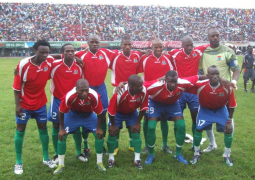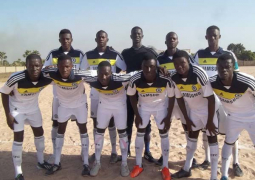UNDP Chief Helen Clark has begun a four-country tour of Africa to highlight progress towards the realisation of the Millennium Development Goals (MDGs) in the run-up to the MDGs Summit in September 2010. She will travel to Mali, Burkina Faso, Tanzania and South Africa.
"Achieving the MDGs means quite simply a better life for billions of people," Helen Clark said.
"In just under 150 days, world leaders will come together in New York for a summit on the MDGs. The message I want to bring on this trip is that reaching the Millennium Development Goals is possible, and that this is a range of tried and tested policies which ensure progress, particularly when backed by strong partnerships."
Helen Clark will meet with Heads of State and Ministers, as well as women leaders and members of civil society.
In Mali, she will also tour the historic city of Timbuktu and meet with women mango farmers, while in Burkina Faso she will tour a project which facilitates access to energy for rural women, and will visit a centre for the reintegration of sex workers.
In Tanzania, Helen Clark will travel to Zanzibar to visit the Jozani Forest, protected in 2007, and tour the National Electoral Commission in Dar es Salaam to speak with newly-registered voters. In South Africa, she will kick-off a promotional pre-World Cup MDGs football match in Pretoria with young girls and boys, who are part of sport and development project.
While the sub-Saharan Africa remains the developing region with the highest number of people living in extreme poverty, poverty rates have dropped rapidly since 1990, hovering around 46 percent in 2008. The financial and economic crisis has slowed that progress, however, over the past year.
The sub-Saharan Africa has also succeeded in reducing by 17.4 percent, between 2001 and 2008, the number of adults and children newly infected by HIV and AIDS, and access to Anti-Retroviral Therapy has been expanded in many countries.
The region continues to show overall progress on gender equality and women's empowerment. Gender parity in primary education will be achieved in most countries in Africa in 2015. The number of seats held by women in parliament has increased in at least 31 countries.
Many individual countries around the region have recorded impressive gains on specific goals. Ethiopia has tripled its net primary school enrolment ratio since 1990.
In Malawi and Niger, the under-five mortality rate has fallen by at least forty percent since 1990. In 2008, Rwanda elected a majority of women, 56 percent, to its lower chamber of parliament - the highest level of female representation of any country in the world. South Africa successfully halved the proportion of people lacking access to safe water. In 2007, about 85% of the population had access to safe drinking water.
In spite of these successes, major challenges remain. Progress on fighting hunger has been slowed, although the proportion of undernourished people fell from 32 percent of the population in 1990-92 to 29 percent in 2008. Deforestation continues to be a worry, with a loss of forest cover from 2000-2005 of 4.1 percent.
The sub-Saharan Africa is the lowest emitter of carbon dioxide, but it stands to be the region most affected by climate change, compounding existing environmental and energy challenges and threatening to undo progress towards the MDGs, unless there is more global action on adaptation and mitigation.
There has been little advance on reducing maternal mortality in the region, with the number of deaths out of 100,000 births dropping from 920 in 1990 to 900 in 2005.
"MDG progress suffers when the needs of women and girls are given low priority," said Helen Clark.
"MDG 5, which seeks to improve maternal health, calls for a reduction by three quarters in the maternal mortality ratio from that of 1990, and for the achievement of universal access to reproductive health - yet this is the MDG on which there has been the least progress so far. Somewhere in the world a woman dies every minute from complications related to pregnancy and childbirth."
Earlier this week, Miss Clark met with G8 Development Ministers in Halifax, Canada, to discuss the September MDGs Summit and the need to re-energise the global MDGs effort with a concrete action plan to accelerate progress. She stressed the importance of key ingredients to success, including inclusive economic growth, strong national leadership, public investment, social protection, access to energy, and investing in women and girls.



